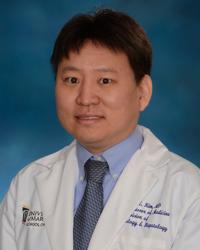This comprehensive program specializes in the care of patients with dysphagia (difficulty swallowing), heartburn, esophageal motility disorders and gastroesophageal reflux disease (GERD).
The Dysphagia and Heartburn physician specialists offer various diagnostic testing and treatment options for patients with GERD and esophageal motility disorders including, achalasia.
Diagnostic Tests
- High-resolution impedance esophageal manometry (HRiM)
- Multichannel intraluminal catheter-based impedance-pH monitoring (24-hr test with or without anti-reflux medications) that detects both acid and non-acid reflux
- Catheter-free (wireless) ambulatory pH monitoring (BRAVOTM capsule pH monitoring; 48- to 96-hr test without anti-reflux medications)
- EndoFlipTM impedance planimetry procedure (Alternative/supplemental test to HRiM)
Therapeutic Options
- Upper endoscopy with interventions including Botox injection of the lower esophageal sphincter and esophageal dilation
- Peroral Endoscopic Myotomy (POEM; minimally invasive endoscopic equivalent of surgical myotomy) for achalasia and other esophageal motility disorders
- Transoral Incisionless Fundoplication (TIF; minimally invasive endoscopic equivalent of surgical fundoplication for patients with GERD who are refractory to maximal medical therapy)
Specialists
IBD Research and Clinical Trials

The University of Maryland Inflammatory Bowel Disease (IBD) Research Program is a national leader in clinical research.
Learn more about IBD Research.




